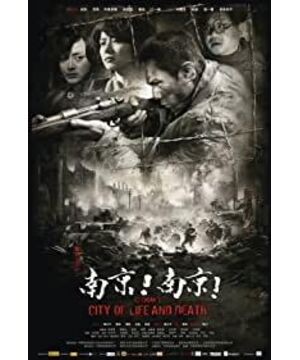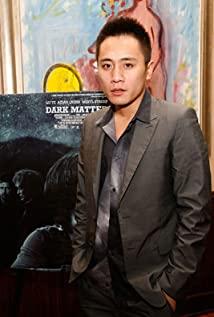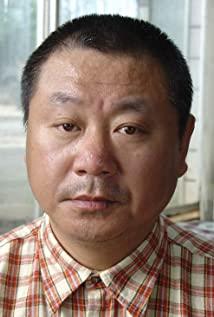The massacre was a humanitarian tragedy, the darkest scene in the history of human civilization, the dirtiest chapter in the history of war, and the saddest page in the history of China's war of resistance. I want to emphasize this point, lest anyone say that my position is wrong. Some people always like to look at their position first when discussing issues. No matter whether the question is asked correctly or not, it naturally conceals the requirement to seek answers.
The film "Nanjing! Nanjing! , almost like a sci-fi movie. Don't get me wrong, I'm not saying that the Nanjing Massacre was a fantasy, there is no doubt that I never doubted the truth of this history. However, the "truth" we need is not just the answer of Yes and No, we also need "why" and "how", "who" and "when", only in this way can our reflection and discussion be authentic. Only the judgments and conclusions we draw have real value and meaning. We have to learn from history. History is unclear, how can we learn from it?
However, these problems are discussed in the film "Nanjing! Nanjing! ", all can not be found. I said "Nanjing! Nanjing! "Like a sci-fi film, because the whole film is like a virtual space-time, a stage floating in the dark space, with no history, no surrounding, and no context. The people who appear in the film have no name, no origin, no life, no soul, and no connection to the world in which they live. Even the psychological activities of the characters that the director occasionally tries to describe are fractured and fragmented.
The motive doesn't even exist. Why did the Japanese army massacre the city? Or down to the individual, why would a Japanese soldier be addicted to murder? Why don't people resist? Likewise, delegating to an individual, an ordinary citizen, why not resist? What I want is not the conclusion of "resistance", what I want is "why", what is their mental activity like? How do they deal with their own lives and lives? How to face a war that will take the lives of yourself and your loved ones? How to face an army of the same face and physique as ours but behaving like demons?
The film presupposes that the bloodthirsty, brutal, and inhumane nature of the Japanese army needs no explanation. The film also presupposes that Chinese people are numb, ready to be slaughtered at any time, and their lives are like ants. The Japanese soldiers (except Kadokawa) in the film are used to kill people. At the same time, the Chinese in the film are used to eat guns, to fall in pieces, to quickly and efficiently achieve the director's expectations. Like sacks, they were stacked before the flood, expressionless and lifeless. How is this different from the mainstream view of history that we have been accustomed to over the years with only the collective and no individual?
Many people mentioned "Nanjing! Nanjing! "The description of "human nature" in the film. Yes, there is "humanity", but only one protagonist is given. But even so, this Japanese soldier named Kadokawa has no identity, no military rank, no troop number, no age, no birthplace, except that the hot pot made by his mother is delicious, you don't know everything about him. The film rudely omits any reasonable explanation, and Kadokawa has no background, no background about this "person". Therefore, although Kadokawa has a destination—suicide, it cannot hide the paleness and emptiness of the only character who is truly “depicted” in the entire film.
Even we were only told that his surname was Kadokawa, not even his first name. Imagine, this is the treatment of the protagonist of the whole film. As for Lu Jianxiong (I guess you don't know who this person is?), Teacher Jiang, and Rabe, these supporting roles are even more unworthy of being explained. As for Nanjing City, the film simply has no time to take it into account. The director wants us to have some new understanding, but understand what? What to understand?
"Nanjing! Nanjing! ” caters to the mainstream victim complaint psychology, which is not fundamentally different from the previous theme films, the difference is only the sound and picture effects of a Korean blockbuster, and the perspective of a Japanese soldier imagined by the director. Yes, I say it's like a Korean blockbuster, not a Hollywood blockbuster, because it learned to use a lot of tragic and bloody scenes in the movie, but even the Hollywood skill of creating meaning through ready-made routines has not mastered arrive.
As for the Japanese soldier's perspective imagined by the director, this is an innovation, and I have to admit that it breaks the previous practice of alienating war with the heroic characters of "Gao Daquan". But it's still a fantasy, and Kadokawa's missing personality and identity are in the same vein as the way our textbooks describe "Dong Cunrui" and "Lei Feng". Kadokawa, who struggled inwardly and committed suicide, is just the director's fantasy of the perpetrator's psychology from the perspective of the victim, so as to obtain compensation.
Strictly speaking, the miserable Kadokawa was an alienated bystander, not even the perpetrator, and aside from the occasional military action and a few words of dialogue, you didn't even know Kadokawa's relationship with the other Japanese soldiers. Did the director really try to understand the perpetrator? Why is a person, an army, or a country full of ill-will or even a demon? How did they feel during the violence? After the violence, how do they face the history of their own demons?
Sorry, these questions don't seem to be what director Lu Chuan wants to provide. "Nanjing! Nanjing! ”, only provides a place called “Nanjing”, it is not even a city, because it only has a military camp, a refugee area and a church, and even the description of the military camp and the refugee area is missing.
History is also missing. Nanjing, the dignified capital of China, why did it fall? Why can't the citizens escape? Why did no one intervene in the atrocities of the Japanese army? In the film, everything has an effect, not a cause. Kadokawa's death seems to have a cause, but it is the cause after the director's intention was forcibly imposed, and the cause after being roughly stripped of some content, so it is also an incomplete cause. It's like, when we hear about a college boy committing suicide by jumping off a building, if we just want to know that he is trapped by love, because a girl he likes rejected him, and thus seeks short-sightedness, then it will only be tabloid news, or Social News. We may not be motivated to trace the root cause of every child who commits suicide. However, our understanding of history cannot stop at the tabloid level.
"Nanjing! Nanjing! , turning everything into symbols, the invaders, the Chinese soldiers, the slaughtered civilians, the rescuers, including the city of Nanjing, and the massacre itself.
However, if anything becomes a symbol, its depth and serious discussion about it are dissolved. And when historical events and characters are symbolized, they become an unspeakable and unexplored theme.
And the biggest worry this film brings to me is that we still have a secretive attitude towards history, truth is still mixed with lies, and people are forbidden to discuss and distinguish. At the same time, our mainstream view of history is still only the whole, not the individual. This perspective and way of thinking has been maintained for two thousand years and has not changed to this day.
The Nanjing Massacre is a tragedy in human history. It requires us to face it bravely and discuss it openly. It requires us to restore the ruthless cause and process of the historical event itself. It also requires us to restore every individual in it, and every one is replaced by a number. people. But I am worried, "Nanjing! Nanjing! " will only push the new generation forward along the old inertia, making it difficult for us to really study and reflect.
View more about City of Life and Death reviews











